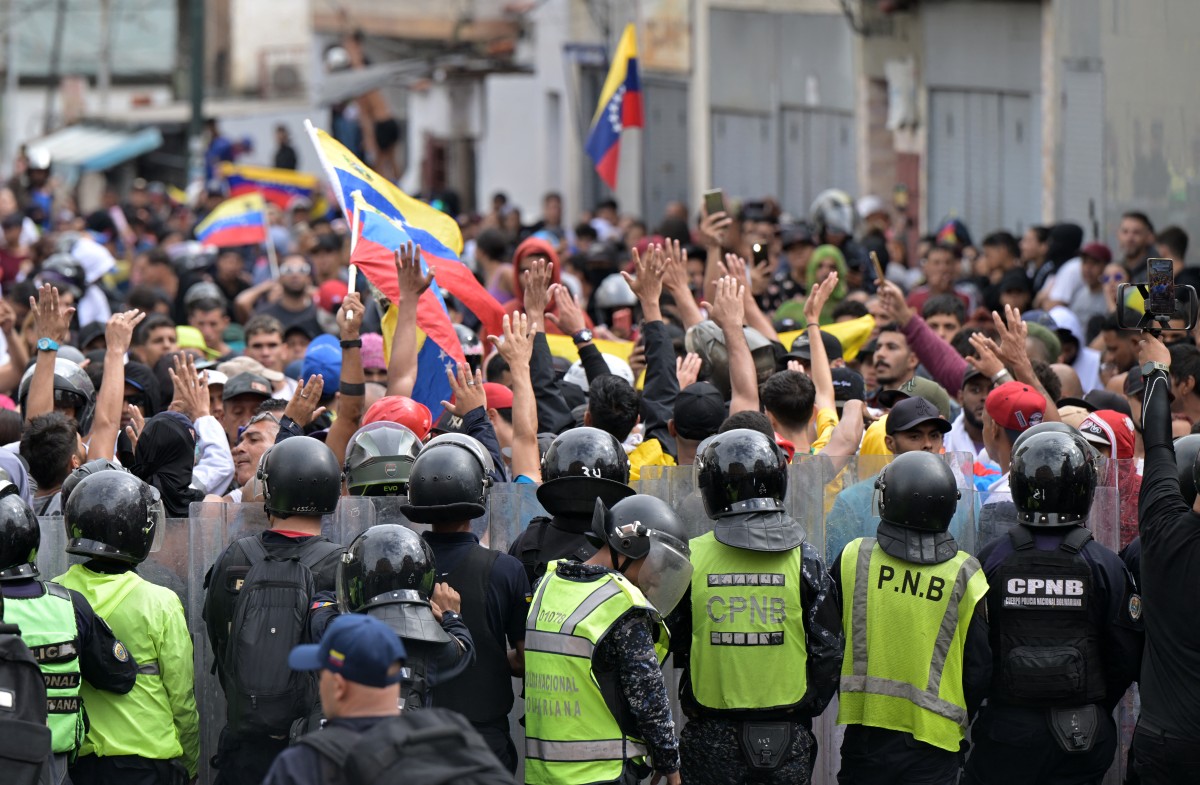The crisis increases the distance between Chavismo and the opposition

The political crisis unleashed in the country after the questioned victory in the presidential elections that the National Electoral Council (CNE) granted to Nicolás Maduro widened the distances between Chavismo and the majority opposition, today further from an understanding than a year ago, when the parties signed an agreement with guarantees for the elections.
On October 17, 2023, a delegation from the government and another from the Democratic Unitary Platform (PUD) – the main opposition bloc – met in Barbados, where they agreed, under the mediation of Norway, to respect the “right of each political actor to select its candidate”, update the electoral registry, invite international observers and promote a peaceful climate, among other points.
However, despite these and other guarantees contemplated in the document, the last elections, far from resolving political instability, aggravated the confrontation between both parties, which consider themselves winners based on results that the CNE did not publish in a disaggregated manner. .
Meanwhile, each side has called for a dialogue that the other rejects and in which it refuses to participate.
According to what former representative Stalin González, a member of the opposition delegation in Barbados, told Efe, after the elections, “the positions have moved further apart,” which is why today it is “much more difficult” to reach the agreement that, in his opinion, urges the country, less than three months before the presidential inauguration, on January 10.
A new agreement
For González, as long as the current crisis continues, Venezuela – which is experiencing an economic “disaster” with salaries “on the floor” and public services that “don’t work” – is going to “be in decline”, something that the Executive denies, which foresees a growth of more than 10% against all forecasts.
The opponent believes that, for the benefit of a nation that wants to live “well and peacefully”, and despite the fact that the ruling party “violated everything” agreed upon in Barbados and “did not seem to be prepared for the alternation of power”, both parties should sit down again and negotiate an agreement that guarantees that “there is political coexistence,” plus “no cohabitation,” and that no one will be “persecuted.”
In that sense, he continued, we must give a “clear signal” that the opposition does not represent a “threat” to “Chavismo in personal terms.”
“We are a threat in political terms because we have a different political proposal, because we want to come to power to exercise it differently, but not to persecute,” he said.
In his opinion, the opposition, for a new dialogue, must “understand that Chavismo exists” and that on the other hand it is a mistake “to believe that international pressure is a strength” to resolve the crisis.
Meanwhile, the government, which is “delegitimized”, according to González, inside and outside the country, has to “understand” that “there is a great desire for change”, that its project “is already unviable” and that, therefore, it must promote an agreement that “returns to the path stated in the Constitution” to have “a full democracy”, with “separation of powers.”
Calls for Chavismo dialogues
The Parliament, controlled by Chavismo, began a dialogue this month to adjust the electoral legislation, without the participation of the PUD, which rejected the call and, in turn, called for a “serious negotiation” for a “transition” on the 10th. January, insisting that the winner was its leader, Edmundo González Urrutia.
The coalition says that those who “must abandon power at the will of the electorate” and those who “should assume it” have to “designate the liaison commissions necessary for the Executive Branch to function in the most orderly manner in the transition.”
Maduro’s chief negotiator, Jorge Rodríguez, rejected that call, assuring that Chavismo does not accept “secret meetings, nor meetings in chapels, nor anywhere other than” Parliament, where it has taken place, since October 3 , the process to review electoral laws regarding the regional and municipal votes of 2025.
The PUD considers this process as “a propaganda exercise”, and expressed that “it was precisely the regime” that “violated what was established in the Barbados Agreement”, which “considered respect for the results of the presidential elections.”.
Independent journalism needs the support of its readers to continue and ensure that the uncomfortable news they don’t want you to read remains within your reach. Today, with your support, we will continue working hard for censorship-free journalism!
